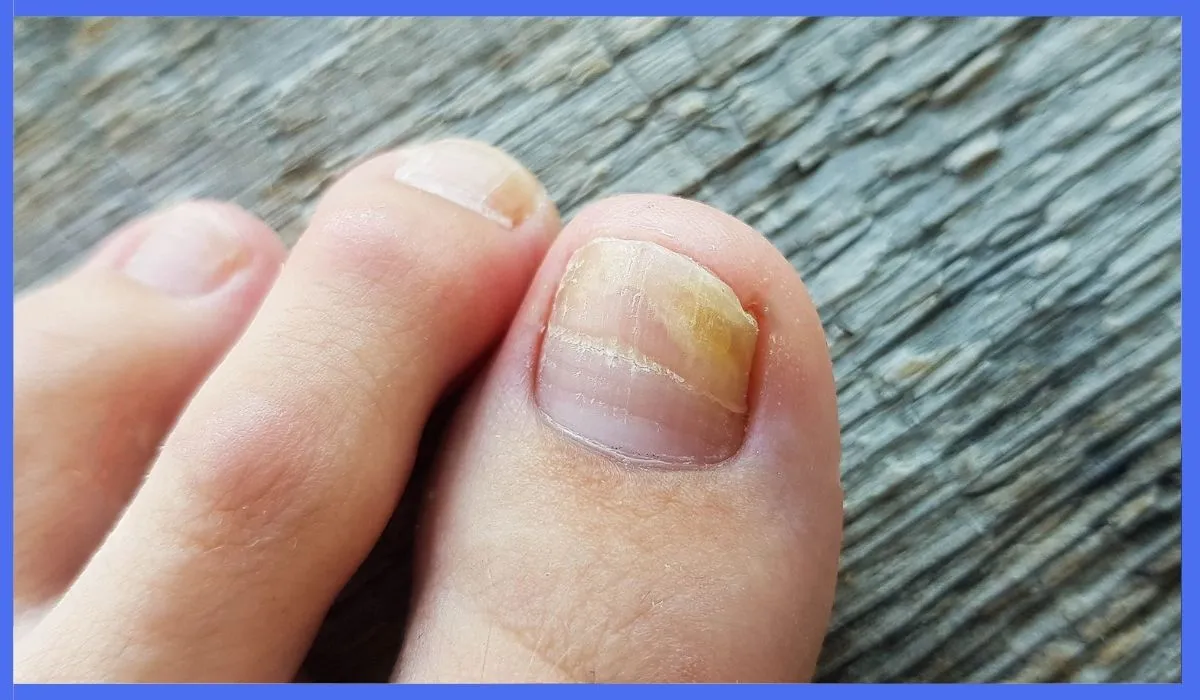Understanding Early Stage Toenail Fungus: Signs, Symptoms, And Treatment
Early stage toenail fungus requires prompt treatment to prevent complications and maintain foot health.

Disclaimer: This article has been generated with the assistance of AI tools. While our research team has fact-checked the content, readers should independently verify information for accuracy and reliability.
Toenail fungus, also known as onychomycosis, is a common condition that affects millions of people worldwide. While it may seem harmless at first, ignoring early signs of toenail fungus can lead to more severe complications. In this article, we’ll explore what toenail fungus is, how to recognize it in its early stages, and what treatment options are available.
What is Early Stage Toenail Fungus? Early stage toenail fungus occurs when fungi, such as dermatophytes, invade the toenail bed and begin to multiply. This can happen due to factors like warm and moist environments, poor foot hygiene, or injury to the toenail. In the early stages, toenail fungus may appear as a white or yellow spot under the tip of the nail. As it progresses, the toenail may become black, thicker, brittle, or discolored.
Early Stage Toenail Fungus: Signs and Symptoms
Recognizing the signs and symptoms of early stage toenail fungus is crucial for prompt treatment. Common indicators include:

- Discoloration: The affected toenail may appear white, yellow, or brownish in color.
- Thickening: The toenail may become thicker or more brittle than usual.
- Disfigurement: Changes in the shape or texture of the toenail may occur.
- Odor: A foul odor may emanate from the infected toenail.
- Pain or Discomfort: Some individuals may experience pain or discomfort around the affected toenail.
Treatment Options:
Early intervention is key to effectively treating toenail fungus. While over-the-counter antifungal creams and ointments may help in mild cases, more severe infections may require prescription medications or professional treatment. Here are some common treatment options for early stage toenail fungus:
- Antifungal Medications: Oral antifungal medications, such as terbinafine or itraconazole, may be prescribed by a healthcare provider to combat the fungal infection from within.
- Topical Treatments: Antifungal nail lacquers or solutions can be applied directly to the affected toenail to target the fungus.
- Laser Therapy: Laser treatment involves using focused light energy to eradicate the fungus and promote healthy nail growth.
- Home Remedies: Some individuals may relieve toenail fungus symptoms by soaking their feet in a mixture of vinegar and water, applying tea tree oil, or using over-the-counter antifungal powders.
- Use Good Antifungal Supplements: Use supplements like NanoDefense Pro to cure the toenail.
Prevention Tips:
Preventing toenail fungus from developing or recurring is essential for maintaining foot health. Here are some tips to reduce the risk of toenail fungus:
- Practice Good Foot Hygiene: Keep your feet clean and dry, especially after swimming or exercising.
- Wear Proper Footwear: Choose breathable shoes and socks that allow air circulation around your feet.
- Avoid Sharing Footwear: Refrain from sharing shoes, socks, or nail clippers with others to prevent the spread of fungal infections.
- Protect Your Feet: Wear shower shoes or sandals in public showers, pools, and locker rooms to minimize exposure to fungi.
Conclusion
Early stage toenail fungus may seem like a minor inconvenience, but it’s essential to address it promptly to prevent further complications. By recognizing the signs and symptoms of toenail fungus and seeking appropriate treatment, you can effectively manage the infection and maintain healthy feet. If you suspect you have toenail fungus, consult with a healthcare provider for an accurate diagnosis and personalized treatment plan.

Lisa Miller
Dr. Lisa Miller is a board-certified Dermatologist with over 15 years of experience treating a wide range of skin, hair, and nail conditions. She received her medical degree from the prestigious Columbia University College of Physicians and Surgeons and completed her dermatology residency at the University of California, San Francisco, one of the top dermatology training programs in the country. Dr. Miller is an active member of the American Academy of Dermatology and has authored numerous peer-reviewed articles and book chapters on the latest advancements in dermatological care. She is frequently invited to speak at national and international medical conferences, sharing her expertise with other clinicians. In her private practice, Dr. Miller takes a patient-centered approach, collaborating closely with each individual to develop customized treatment plans. She is passionate about empowering her patients to achieve optimal skin, hair, and nail health through a combination of the latest medical therapies and lifestyle recommendations.
